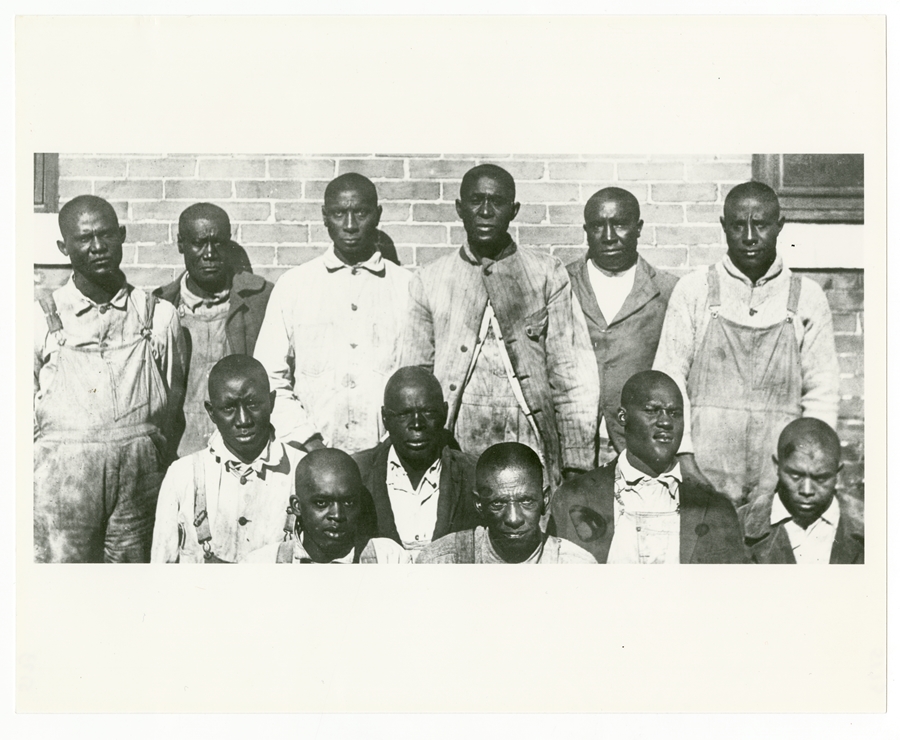The Pryor Center Presents lecture series opens this fall with "A Symposium on the Elaine Massacre" from 9 a.m. to 4:15 p.m. on Thursday, Sept. 19, at the David and Barbara Pryor Center for Arkansas Oral and Visual History in the J. William Fulbright College of Arts and Sciences.
Also known as the Elaine Race Riot of 1919, this event, which occurred in Phillips County, Arkansas, was one of approximately 25 anti-black riots that occurred throughout the US that year and was one of the largest racial mass killings in our country's history.
Judge Brian S. Miller will present "A Family History and Recovery from the Elaine Massacre." Four of Miller's great-uncles were among the victims of the Elaine Massacre.
Robert Whitaker is the author of On the Laps of Gods: The Red Summer of 1919 and the Struggle for Justice that Remade a Nation. Whitaker will present "Discovering a Hidden Past: How Do We Know That a Massacre Occurred?"
J. Chester Johnson, a well-known poet and essayist, grew up one county removed from the site of the Elaine Massacre. Johnson, whose grandfather participated in the massacre, will present "Damaged Heritage: From the Elaine Race Massacre to Reconciliation."
Sheila Walker, whose great-grandmother and several great-uncles were victims, will present "What Is a True Ally? An Open Conversation on True Racism."
Rayman L. Solomon, former Dean of Rutgers School of Law-Camden, is a native of Phillips County and has been an active member of the Elaine Massacre Memorial Committee. Solomon will present "Moore v. Dempsey and the Rights Revolution."
The event is sponsored by the J. William Fulbright College of Arts and Sciences, African and African American Studies, Department of Communication, Department of History, School of Journalism and Strategic Media, and the Department of Sociology and Criminology.
The Pryor Center is located at 1 East Center Street, Suite 120, and parking is available on the Fayetteville Square. The event is free and open to the public.
About the The David and Barbara Pryor Center for Arkansas Oral and Visual History: The David and Barbara Pryor Center for Arkansas Oral and Visual History is an oral history program with the mission to document the history of Arkansas through the collection of spoken memories and visual records, preserve the collection in perpetuity, and connect Arkansans and the world to the collection through the Internet, TV broadcasts, educational programs, and other means. The Pryor Center records audio and video interviews about Arkansas history and culture, collects other organizations' recordings, organizes these recordings into an archive, and provides public access to the archive, primarily through the website at http://pryorcenter.uark.edu. The Pryor Center is the state's only oral and visual history program with a statewide, seventy-five county mission to collect, preserve, and share audio and moving image recordings of Arkansas history.
About the J. William Fulbright College of Arts and Sciences: The J. William Fulbright College of Arts and Sciences s the largest and most academically diverse unit on campus with three schools, 16 departments and 43 academic programs and research centers. The college provides the core curriculum for all University of Arkansas students and is named for J. William Fulbright, former university president and longtime U.S. senator.
About the University of Arkansas:The University of Arkansas provides an internationally competitive education for undergraduate and graduate students in more than 200 academic programs. The university contributes new knowledge, economic development, basic and applied research, and creative activity while also providing service to academic and professional disciplines. The Carnegie Foundation classifies the University of Arkansas among only 2 percent of universities in America that have the highest level of research activity. U.S. News & World Reportranks the University of Arkansas among its top American public research universities. Founded in 1871, the University of Arkansas comprises 10 colleges and schools and maintains a low student-to-faculty ratio that promotes personal attention and close mentoring.
Topics
Contacts
William A. Schwab, executive director
Pryor Center for Arkansas Oral and Visual History
479-575-5181,
Andra Parrish Liwag, director of communications
J. William Fulbright College of Arts and Sciences
479-575-4393,
